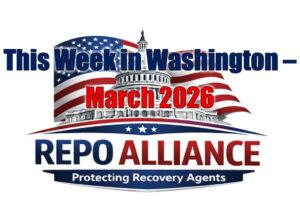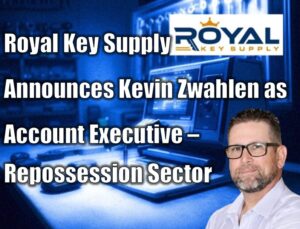I read where a forwarder was offering a fee for a “RESOLUTION” where a recovery specialist makes contact with a consumer and through that effort the client reaches an amicable agreement with the consumer. This fee, I would assume, would be less than a full recovery fee and under the circumstances I wonder “WHY”?
Why would a “RESOLUTION not be worth the same as a “REPOSSESSION”?











More Stories
Colorado Bill Aims to Severely Impact All Repossession Operations
Today is Fallen Agents Day – 2026
From Auction Cutting to Field Programming: The Structural Shift No One Budgeted For
Bad Apples in the Repossession Industry
Why Self-Help Repossession Is Taken for Granted — and Why Losing It Would Hurt Consumers Most
A Necessary Distinction: Financial Oversight vs. Financial Control